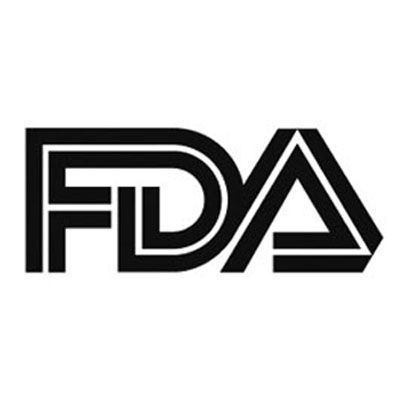FDA Grants Fast Track Designation to Novel AR Inhibitor for AR+/ER+/HER- mBC
Enobosarm has been granted fast track designation from the FDA and is being explored alone and in combination with abemaciclib in 2 phase 3 clinical trials.

The FDA has granted fast track designation to enobosarm for the treatment of androgen receptor (AR)-positive, estrogen receptor (ER)-positive, human epidermal growth factor receptor 2 (HER2)-negative metastatic breast cancer patients who have shown previous disease progression on a nonsteroidal AI, fulvestrant, and CDK 4/6 inhibitor therapy, and who have AR% nuclei staining ≥ 40% in breast cancer tissue, according to a press release by Veru Inc.1
Enobosarm, a selective androgen receptor targeting agonist, is under investigation as monotherapy in the phase 3, multicenter, randomized, open-label, ARTEST trial (NCT04869943) of patients with AR-positive, ER-positive, HER2-negative metastatic breast cancer. The study’s primary end point is progression-free survival, and the secondary end point is overall response rate.
Patients who are eligible to enroll in the ARTEST study are those 18 years of age or older with an ECOG performance status ≤ 2, measurable disease per RECIST 1.1, documented evidence of ER-positive, HER2-negative, metastatic breast cancer, and have an AR nuclei staining ≥ 40% as assessed by central laboratory. In terms of prior therapy, patients are required to have at least 2 prior lines of treatment in the metastatic setting. All patients must have previously responded to either fulvestrant monotherapy or fulvestrant plus a CDK 4/6 inhibitor or nonsteroidal aromatase inhibitor monotherapy or nonsteroidal aromatase inhibitor plus a CDK 4/6 inhibitor. Females must be postmenopausal in order to enroll in the study, and males must agree to use contraception while enrolled.2
The study excludes individuals who have known hypersensitivity or allergy to enobosarm, as well as those with abnormal laboratory results, a biliary catheter, were treated previously with > 1 course of systemic chemotherapy for metastatic breast cancer, had major surgery within 30 days of study enrollment, received prior hormone treatment, testosterone-like treatment, or hormone replacement therapy. Patients with certain comorbidities are also excluded from the study.
ARTEST is ongoing at 50 study locations throughout the United States as well as in Poland, Spain, and Ukraine. A phase 3 study of enobosarm in combination with abemaciclib (Verzenio) is also underway (ENABLAR-2, NCT05065411) to evaluate the efficacy and safety of the combination in patients with AR-positive ER-positive, HER2-negative metastatic breast cancer whose disease is resistant to palbociclib and estrogen-blocking agent.1
With a fast track designation from the FDA, the developer of enobosarm will be able to develop the drug and have a speedy review of any applications submitted to the FDA. The drug will also be eligible to receive a priority review and accelerated approval if the necessary criteria are met.
“We are very pleased that enobosarm has received Fast Track designation from the FDA, a distinction that underscores the urgent need for new, novel, targeted therapies for this important patient population suffering from this aggressive disease,” said Mitchell Steiner, MD, chairman, president, and chief executive officer of Veru Inc, in a press release. “We look forward to ongoing, productive regulatory interactions with the FDA, which are further enabled with this designation.”
References:
1. Veru announces FDA Grant of fast track designation for enobosarm for the treatment of AR+ ER+ HER2- metastatic breast cancer. News release. January 10, 2022. Accessed January 10, 2022. https://bit.ly/3qbkRDM
2. Efficacy evaluation of enobosarm monotherapy in treatment of AR+/ER+/HER2- metastatic breast cancer (ARTEST). Clinicaltrials.gov. Accessed January 10, 2021.
Therapy Type and Site of Metastases Factor into HR+, HER2+ mBC Treatment
December 20th 2024During a Case-Based Roundtable® event, Ian Krop, MD, and participants discussed considerations affecting first- and second-line treatment of metastatic HER2-positive breast cancer in the first article of a 2-part series.
Read More
ctDNA Detection Tied to Tumor Burden, Recurrence in HR+ Early Breast Cancer
December 13th 2024A phase 2 trial showed ctDNA detection in HR-positive early breast cancer was linked to larger tumors, higher residual cancer burden, and increased recurrence after neoadjuvant endocrine therapy.
Read More